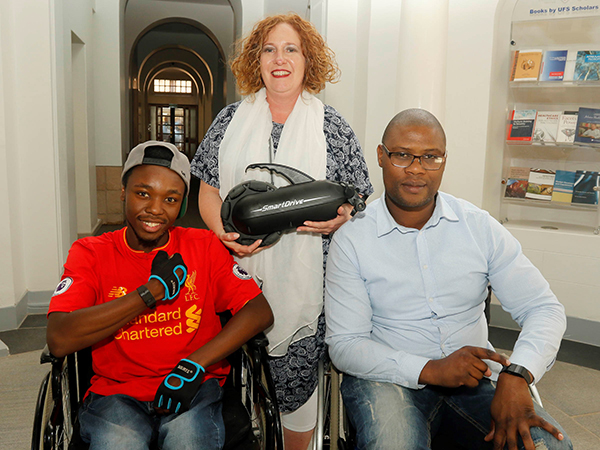Latest News Archive
Please select Category, Year, and then Month to display items
03 January 2023
|
Story Lacea Loader
|
Photo Evert Kleynhans
 Dr Dolf van Niekerk.
Dr Dolf van Niekerk.
The University of the Free State (UFS) would like to express its condolences to the family and friends of South African author, Dr Dolf van Niekerk, on his passing.
Dr Van Niekerk, the recipient of an
honorary doctorate from the UFS, passed away on 31 December 2022. The UFS awarded a Doctor of Letters to Dr Dolf van Niekerk during its April 2021 graduation ceremony.
Dr Van Niekerk was a celebrated author who also achieved fame as a dramatist and radio presenter. An alumnus of the UFS, he received a BA degree from the university cum laude in 1949. He also played a role in academia and was an emeritus professor at the University of Pretoria until his retirement in 1994. His work includes 27 books in philosophy, poetry, fiction, drama, and memoirs, for which he has received numerous awards. These include the
Eugene Marais Prize, the MER Prize, and the Scheepers Award for Youth Literature.
“Dr van Niekerk is a Kovsie alumnus with a deep connection to the Free State. He played a significant role in the country’s literary history, and it was an honour for the university to award him with an honorary degree. A wordsmith of note, Dr van Niekerk’s contributions to South African literature, radio, and stage will live on," says
Prof Francis Petersen, Rector and Vice-Chancellor.
SmartDrive devices give UFS wheelchair users more independence
2017-12-01

From the left, are: David Mashape; Martie Miranda, Head of the
Center for Universal Access and Disability Support at the UFS;
and Lawrence Qamba, celebrating the recent acquisition
of two SmartDrive Power Assist devices.
Photo: Johan Roux
Students who make use of wheelchairs at the University of the Free State (UFS) will now be able to move around campus more independently than before. This is thanks to two SmartDrive Power Assist devices acquired by the university.
Accessibility is very important to the institution and with these devices clipping onto a manual wheelchair to make it motorised, students will not have to ask for help that often. It will assist them in overcoming obstacles they face every day.
Different surfaces pose different challenges
According to Martie Miranda, Head of the Center for Universal Access and Disability Support (CUADS), one of the most important advantages of the SmartDrive machines is that it enhances the independence of students. The devices were bought with funds received from the Department of Higher Education and Training specifically allocated for accessibility and infrastructure.
“While the UFS is addressing inaccessibility on its campuses, which will take time, this will help to motorise wheelchairs for wheelchair users to move around more easily. Students can now move around independently without necessarily asking for help, for example, to get up very steep ramps.” Miranda says some surfaces, such as grass and gravel, has its own unique challenges for wheelchair users.
A few years coming
The SmartDrive devices are operated by a Bluetooth watch. By tapping twice on the chair or clapping twice, the motor propels the wheelchair forward and stops when tapped twice, while also braking with one’s hands. The speed can also be controlled by the user. The machines use rechargeable batteries, with a fully charged battery lasting up to 15 hours.
Acquiring the devices was a process of a few years, and CUADS is happy to finally employ them to the benefit of their students. Miranda says the determination and support of Prof Nicky Morgan, Vice-Rector: Operations, and the assistance of Nico Janse van Rensburg, Senior Director: Top Management, were instrumental in buying the devices.